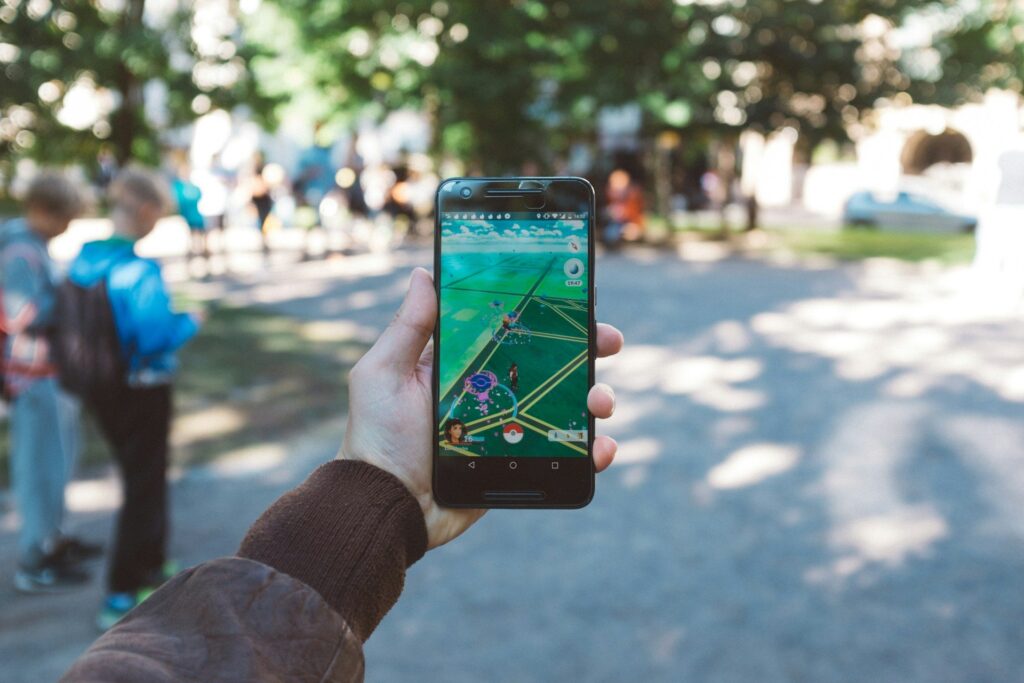
Unsplash/David Grandmougin
Saudi Arabia’s acquisition of Pokémon Go marks a milestone in the gaming industry and the broader cultural and geopolitical landscape.
Last month Niantic, the studio behind Pokémon Go, announced the sale of its mobile gaming division to Scopely, a developer owned by Saudi Arabia’s Public Investment Fund (PIF).
With this $3.85 billion deal, the kingdom further cements its role as a global gaming industry player. However, the implications go far beyond entertainment.
For years video games have been dismissed as mere entertainment. Yet they are now a dominant cultural industry of our time, shaping storytelling, artistic expression and even national influence.
GII Global Information reported that the global video game software market was worth approximately $269 billion in 2024. It is projected to reach $304 billion in 2025 and a staggering $721 billion by 2034.
By contrast, global box office cinema revenues will reach just $33 billion in 2025, according to Gower Street Analytics.
Video games have an ability to immerse audiences, blending interactive storytelling with advanced technology. No longer a niche sector, gaming is driving the evolution of other cultural fields, from cinema and literature to contemporary art and even theme parks.
Initially we saw games being adapted from films. Then came movies inspired by video games, such as Pixels, Assassin’s Creed or Tetris.
Today however the relationship between gaming and other cultural sectors is more intertwined.
Historically video games have been a powerful instrument of soft power, particularly for East Asian countries
For example video games are powerful educational tools. Many now explore Arab history and culture. Ubisoft’s Assassin’s Creed: Mirage brings Baghdad’s Golden Age to life, while Sheba: A New Dawn by Kashkool Games incorporates Emirati heritage, offering players an immersive historical experience.
Games also introduce interactivity into traditionally passive media. Literature has embraced this through interactive devices such as INK Console, making reading dynamic. Netflix’s interactive series also reflects the influence of gaming, allowing viewers to shape narratives like roleplaying games.
This deep integration of gaming into art, education and media highlights its evolution from entertainment to a cultural force shaping global narratives. Recognising gaming’s growing influence, Saudi Arabia has strategically positioned itself at the forefront of this transformation.
Through PIF the kingdom has acquired stakes in major gaming companies, reinforcing its role in the industry’s future. These investments include Electronic Arts (FIFA), Take-Two Interactive (Grand Theft Auto), Embracer Group (Tomb Raider) and even Nintendo (The Legend of Zelda).
Cultural integration
With the acquisition of Niantic’s mobile gaming division, Saudi Arabia is not just investing in video games – it is embracing AI and augmented reality-powered outdoor gaming experiences designed to inspire exploration and engagement with the real world.
Niantic’s mission has always been to encourage players to step outside and connect. Its games have already forged partnerships with major museums worldwide, including MoMA (New York), the Philadelphia Museum of Art, the Morikami Museum and Japanese Gardens (Florida), the Museum of London and the Louvre-Lens, which hosted a Pokémon Go treasure hunt.
Given Saudi Arabia’s plans to open dozens of museums in the coming years, this acquisition suggests a broader ambition.
Gaming has the potential to revolutionise cultural mediation, transforming how visitors interact with heritage sites and museums, art centres or festivals.
Historically video games have been a powerful instrument of soft power, particularly for East Asian countries. Franchises such as Pokémon, Final Fantasy and The Legend of Zelda have shaped global perceptions of Japanese culture and have strengthened the region’s cultural influence worldwide.
Now the balance is shifting toward the Gulf. Investments in Pokémon Go and other major franchises go beyond business; they represent a deliberate effort to position Saudi Arabia as a powerhouse at the intersection of the increasingly connected gaming, artistic and tourism industries.
From Renaissance masters like Da Vinci to digital icons such as Pikachu, cultural influence is complex and constantly evolving. Video games now sit at the heart of this transformation, bridging industries and reshaping narratives.
Saudi Arabia’s expanding presence in gaming is a major part of a campaign to build cultural influence in a world where gaming, entertainment and geopolitics are more intertwined than ever.
Adeline Pilon is founder of Happening Technologies, co-founder of the Elyx Foundation and was named in 2023 as one of the top 100 cultural influencers in France



